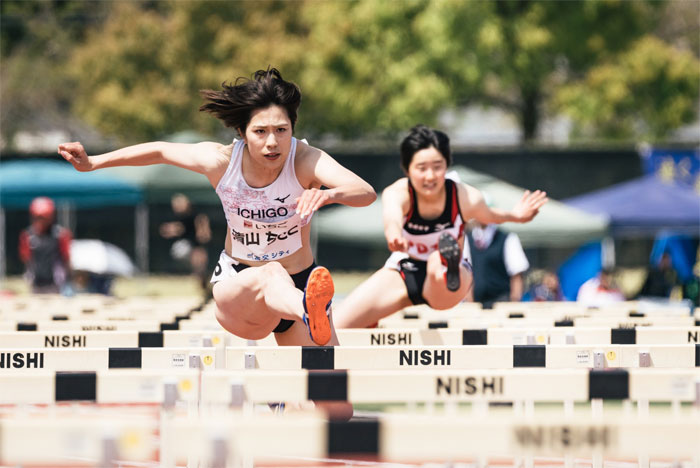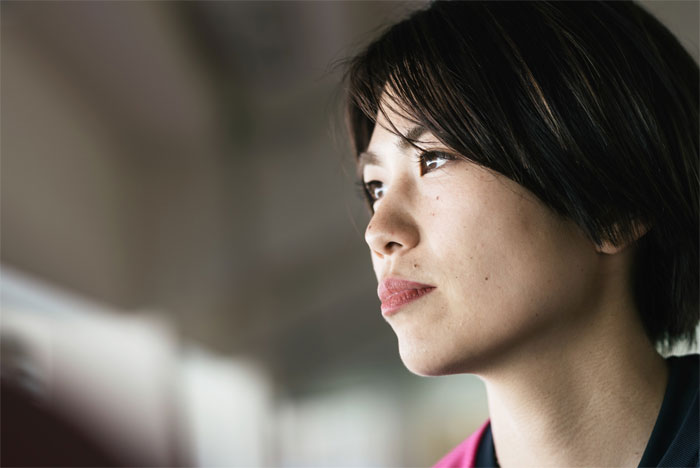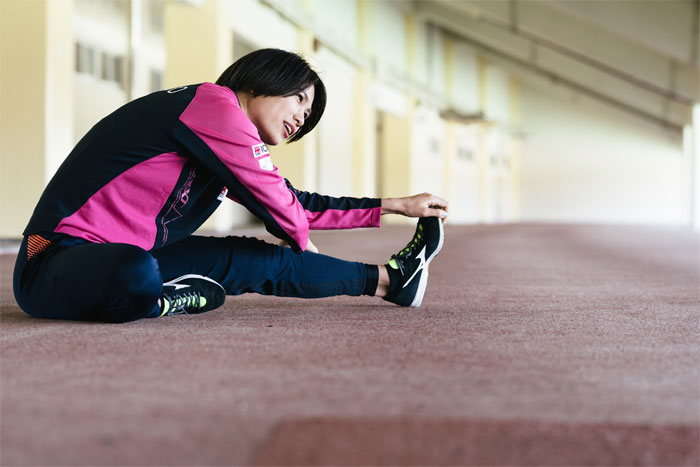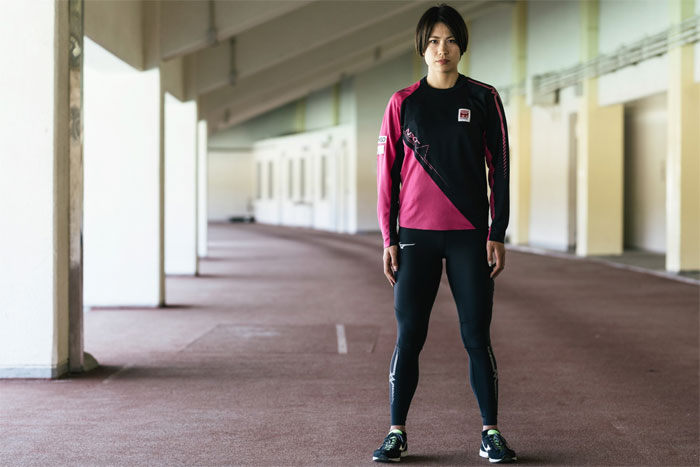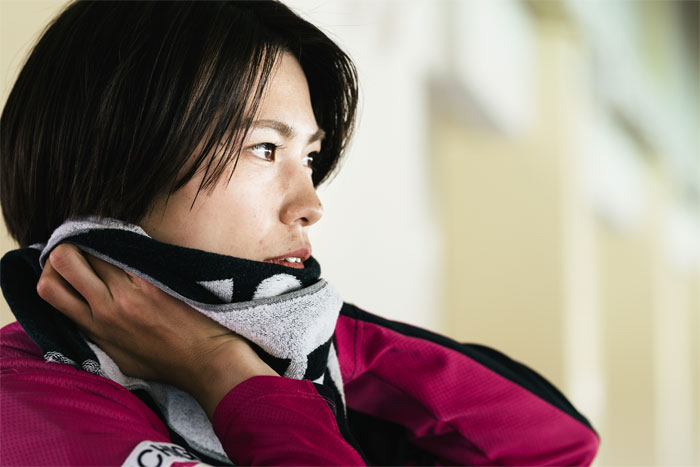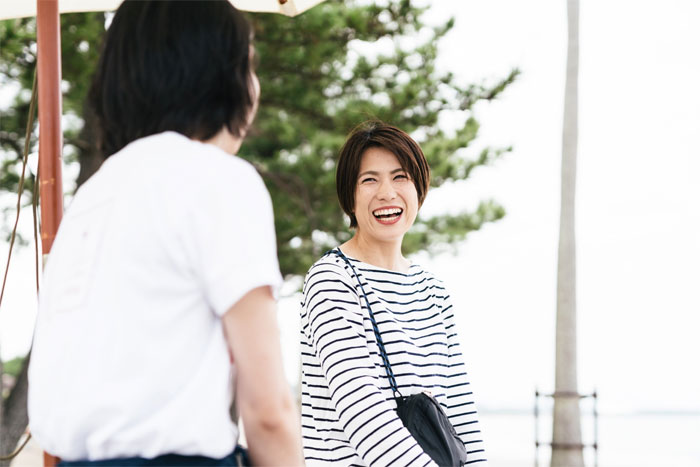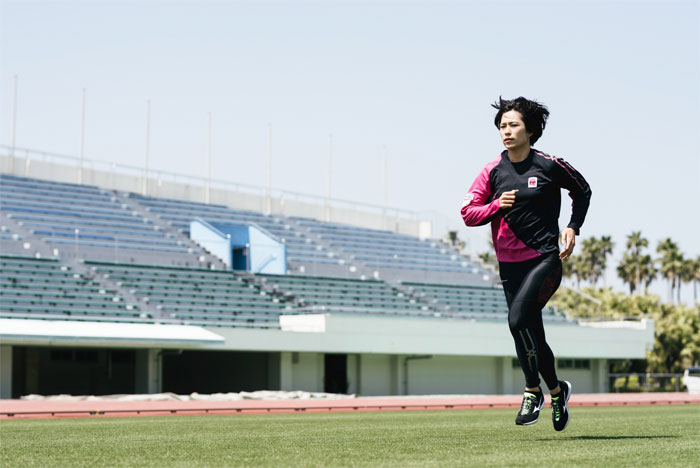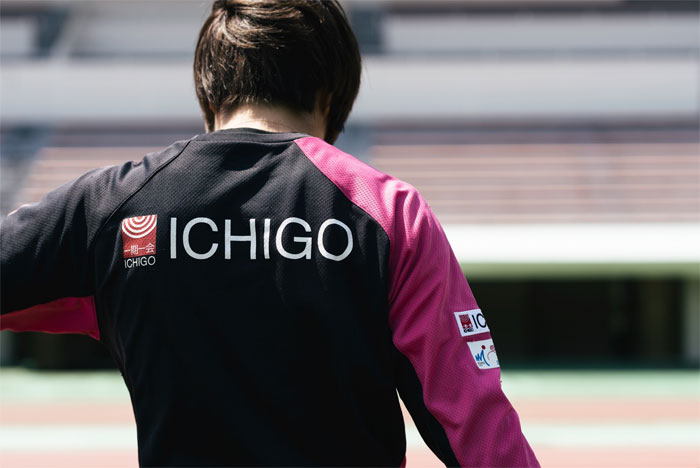
 Story
Story
The Olympic Dreams of Chisato Kiyoyama
Helping a Sprinter Get Her Shot at Tokyo 2020
Every morning during the track and field season, Chisato Kiyoyama strides out onto the grounds of the Kirishima Hibiscus Stadium in Japanʼs southern island of Kyushu. Using a hand cart, she places wooden hurdles at regular intervals along a 100-meter stretch of track.
Then she starts running her self-made course, over and over again.
She jogs the first few times, but is soon doing sprints, bursting forward in a mad rush of speed punctuated by leaps that seem to pause in midair. Sometimes she misses, banging a knee on one of the barriers.
Around her, the stadiumʼs vacant stands watch in silence, broken only by the rustle of palm fronds and a lone cicadaʼs chorus.
‟My dream is to run in front of a roaring crowd,” she says while walking back to the starting line. And she knows exactly where and when she wants to do that: next summer in Tokyo, during the 2020 Olympics.
She also knows what it will take to get there. Currently, Kiyoyamaʼs best time in the 100-meter hurdles is 13.24 seconds, which makes her the sixth-fastest woman in Japan.
Only the top three runners will win spots on the national team. To make it, she needs to shave just a few tenths of a second off her time.
Each tenth of a second is the equivalent of about one meter at the finish line.
‟One meter. What I do here every day, all this work, is all about one meter,” says Kiyoyama.
It has taken her years, and a few setbacks, to get within a few meters of the Olympics.
Kiyoyama, 28, grew up just ten minutes away from the Hibiscus Stadium with her parents, who work at a garbage incinerator plant. In elementary school, she played the trombone and didnʼt think seriously about running, though she says she was always faster than her classmates.
That changed in 2002, when she saw the international track and field Grand Prix Final in Paris on television. The intensity of world-class athletes competing thrilled her.
She joined the middle school track and field team, where her coach had her run hurdles because she was taller than her teammates at 170 centimeters. She excelled, winning regional events.
Running became her passion.
‟I used to joke with myself that my hurdles were my best friends, and my boyfriends,” she recalls.
Then one day, when Kiyoyama was training as a high school senior, she felt a sharp pain in her calf. A trip to the hospital revealed that the stress of running had cracked her fibula.
She lost a season, but resumed running as soon as the cast came off. A year later, the bone fractured a second time. The doctors told her the only way she could run again was by surgically implanting a titanium plate.
She knew her parents couldnʼt easily afford such an operation, and so she agonized for weeks over whether to give up running. When she finally did tell her father, he replied without hesitation that she should do the surgery.
The experience changed her view of running.
‟I used to run for myself,” Kiyoyama says. ‟Now I know that I run for everyone who supports me: my parents, my friends, my company Ichigo, and hopefully one day, my country.”
On finishing graduate school, she knew she needed a sponsor to continue pursuing her Olympic dream. That is when she found Ichigo, a Japanese sustainable infrastructure company that as part of its commitment to helping people excel supports a half-dozen national- and world-class Japanese athletes in track and field, weightlifting, and rifle shooting.
Ichigo hires the athletes as full-time employees and gives them time to practice and compete, while also paying for coaches, equipment, and travel. When she is not training, Kiyoyama works as a receptionist at Miyako City, an Ichigo-owned shopping mall in Miyazaki.
During the season, she spends much of her time in a training routine that also includes working out with weights and standing on large beanbags to hone her sense of balance.
And every morning, she is at the Hibiscus Stadium, running and re-running the 100-meter hurdles, to shave that fraction of a second off her running time.
‟In the future, I want to do something to say thank you to my parents, society, and Ichigo,” Kiyoyama says. ‟But now, I am focused on just one thing: getting to Tokyo.”

